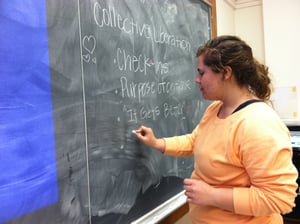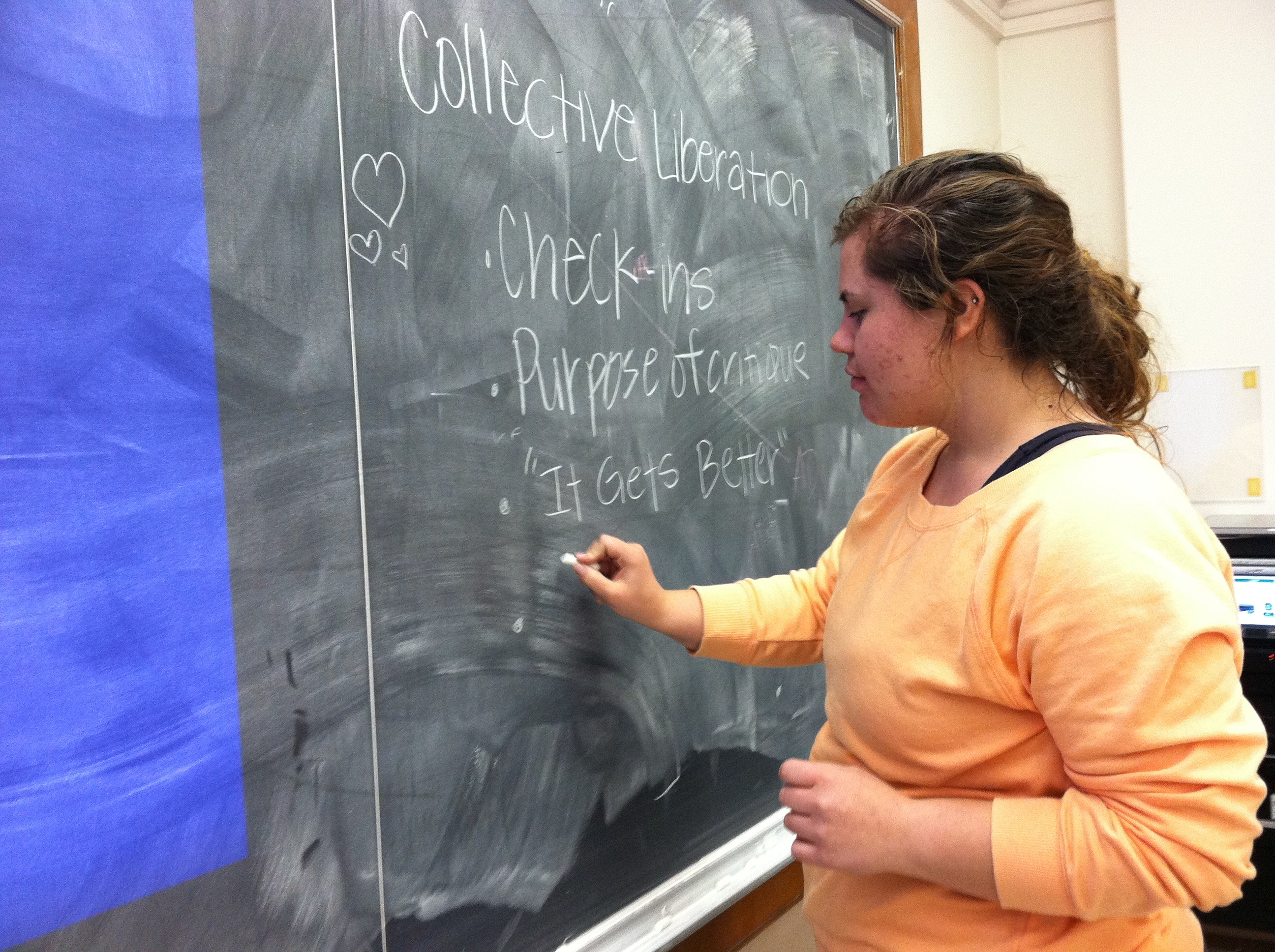As a native Nebraskan now living my third year in Berkeley, California, I do not take for granted the many aware, passionate, queer spaces in the area. Yet I still find myself dissatisfied. Why do we not have serious academic work committed to an intersectional approach, one in which all voices are heard and valued? Why do students, sometimes including myself, question the validity of our ideas within this academic space?
 For my Community Service Project, I partnered with my friend Judee Sharon to design and facilitate a 3-unit undergraduate course called Collective Liberation at UC Berkeley.
For my Community Service Project, I partnered with my friend Judee Sharon to design and facilitate a 3-unit undergraduate course called Collective Liberation at UC Berkeley.
Collective Liberation consists of six parts:
1. Identity
2. Privilege/Power/Oppression
3. Understanding, Appreciating and Critiquing Past Movements
4. Current Struggles for Equality
5. Against Equality/Trickle-up Social Justice
6. New Struggles for Liberation
By bringing together anti-racist, feminist, queer, anti-ableist, economic justice and other social justice movements, we can understand and accept our multiple, complex, and sometimes contradicting personal narratives and unite them. Each week we challenge common understandings of creating change that prioritize privileged agendas in a way that ignores those most vulnerable within our society. And by focusing on those most vulnerable, we are realizing our common needs and how our liberation is bound together. We also claim our own experiences, truths and voices – discovering how we each play vital roles in achieving queer liberation and, indeed, liberation for all.
I am already experiencing the profound effects of this course, both personally and collectively with those enrolled. No doubt, this is no easy journey. Yet through this labor of love, I have taken my education into my own hands, and it is already serving as one of my best experiences at Berkeley.
I will never forget when, providing feedback on the first class, one student shared their relief to finally find an inclusive, safe space. Despite going to UC Berkeley, this transgender student had yet to find an academic space where preferred gender pronouns are asked and all identities are welcomed and celebrated. And they are not alone. This feedback is how I know that Collective Liberation is needed and already making a difference.
This course is meant to empower students while transforming current understandings of activism, the role of the university, and the value of our personal narratives. After only a few weeks, I myself feel more empowered and more confident than ever. One of our assignments was to write our own “Identifestos for Liberation.” All students and both facilitators participated, and the last line of mine read:
We need to believe, to know with all of our hearts, that the change we seek is possible; the coalitions will be built, the collective humanity realized.”
Collective Liberation is my one of my contributions.
Click here to view a course syllabus.
| This post was written by Mary Susman |
 |
Mary Susman was born and raised in Omaha, Nebraska. She believes the LGBTQ community and other minority groups are often excluded from coverage or inaccurately portrayed in the media. Mary plans to be a vehicle through which voices can be heard, believing that through ethical journalism, stereotypes can be broken and inclusion can be achieved. Mary continues her activism while studying media studies and sociology at the University of California, Berkeley. Learn more about Mary. |

